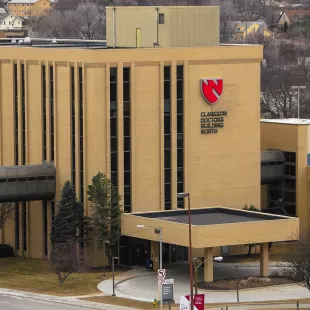Having a clear understanding of cognitive problems, behavioral concerns, and the real people who are experiencing them is important for diagnosis and treatment. This is what Nebraska Medicine neuropsychologists do.
Comprehensive neuropsychological evaluation services are provided by a devoted team of doctoral-level neuropsychologists. They specialize in assessing memory, problem-solving, visual-spatial, language, attention, behavioral and emotional issues. These issues can be associated with general medical conditions, specific neurological diseases or injuries affecting the brain. Our specialists work closely with each patient's medical team to identify appropriate diagnoses and offer personalized recommendations.
We Address a Variety of Cognitive Neuropsychology Issues
Our team can assess many kinds of cognitive problems and help identify causes and recommend treatment. Specialty areas include:
- Epilepsy
- Neuro-oncology
- Parkinson’s disease
- Head trauma
- Dementia
- Learning disabilities
- Changes in thinking associated with general medical conditions
Comprehensive Testing
A typical neuropsychological evaluation is performed using paper and pencil and computerized tests that are sensitive to problems in the brain. The types of tests given depend on the questions a patient and his or her doctor have. A typical evaluation involves assessment of the following abilities:
- Attention and concentration
- Learning and memory
- Language
- Visual and spatial abilities
- Reasoning and planning skills
- Motor and sensory abilities
- Intelligence
- Mood and personality
Some abilities may be measured in more detail than others, depending on patient needs.
Why Neuropsychological Evaluations are Conducted
Neuropsychological evaluations are requested to help doctors and other professionals understand how the different areas and functions of the brain are working. Testing is usually recommended when there are symptoms or complaints involving memory and thinking. Symptoms may be due to any number of medical, neurological, psychological or developmental causes and testing will be helpful in understanding each patient’s situation. The results of testing can serve as a baseline prior to surgery or treatment, or may be used to assist in diagnosis and treatment planning.
How an Evaluation is Conducted
A neuropsychological evaluation usually consists of an interview with the clinical neuropsychologist followed by testing completed by the neuropsychologist or a highly trained technician. During the interview, the patient may be asked about his or her symptoms, medical history, medications and other information relevant to their diagnosis and treatment.The length of the examination will depend on the problem being assessed. In general, evaluations last three to six hours. Some tests will be easy while others will be more difficult. All patients are encouraged to try their best. Our staff encourages patients to bring glasses or hearing aids, and to try to get a good night’s sleep and eat well before an evaluation.
A Report is Compiled Based on the Findings
The neuropsychologist will write a report that will go to the physician requesting the evaluation and to any other professionals identified to receive the report. A follow-up session may be scheduled to review results of the initial evaluation and provider further recommendations. The provider may suggest re-evaluation at certain intervals to document changes after a procedure, after a change in treatment or after a certain length of time has passed.
Nebraska Medicine neuropsychology is here for you, specializing in brain anatomy, brain function and leading edge diagnosis of brain injury and disease.
Our Locations
-

Neuropsychology at Clarkson Doctors Building North
4242 Farnam St., Suite 460
Get Directions
Omaha NE 68131 -

-
Meet the Neuropsychology Team
Learn more about our Neuropsychology team.
View More

